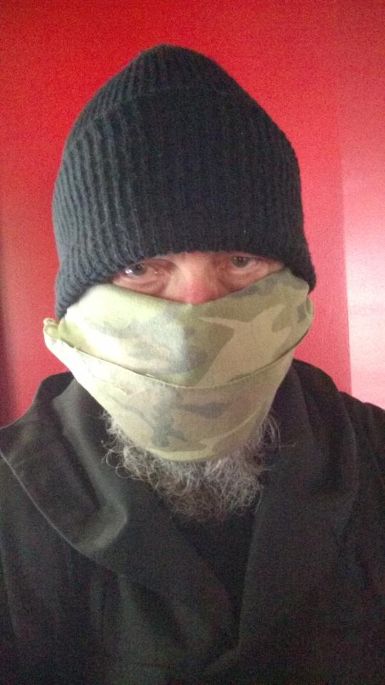When Chanise turned ten she moved to the countryside.
Nine other African-American foster children became her new brothers and sisters. Like her, they hailed from the inner city. Like her, all stood out in the white rural countryside. Like her, until moving to green open spaces, they had never seen a barn, farm animals or a fish pond.
Chanise’s foster parents left urban violence behind so they and the children they raised over the years could enjoy a better life of fresh air, swimming and all the grassy hills they could roll down, tumbling freely until they safely reached the bottom.
Mom and Dad were Black, too.
Despite their peace of mind, every child ran the day they saw the cop. The two youngest cried and hid their faces as if the big state trooper couldn’t see them, as if they had somehow turned invisible when their little hands covered their faces. But he spotted them as soon as the marked state police car crested the hill. He saw their pain. He saw their confusion. He saw their panic at the sight of a slowly moving car with colored lights on the roof.
By the time he pulled to the side of the road they had disappeared.
A cow mooed.
A sheep bleated.
The big cop sighed.
When he drove by even more slowly the next day the kids were gone. But he felt small eyes peering from unseen places, watching him as he pulled to the berm and stopped the car. This time he got out. This time he carried big cellophane bags he opened with large gentle hands. This time he threw and dropped and spread candy on the sloping grass hills that led to the farmhouse, licorice-laced-tootsie-roll popped-chocolate-covered peace offerings no child could or would resist.
Then he drove away.
The next day he did it again.
And on the third day all the kids were waiting, standing on the hill when the big white cop drove over the hill.
So were Mom and Dad.
My name is Trooper Jim, the policeman said.
Shy for city people, the parents deferred to the officer’s authority. But he talked with them like equals, treating them respectfully like he was a favorite out-of-town uncle who had arrived for Christmas bearing gifts. He told the aging couple that if they needed anything, all they had to do was ask. Over the next few months, the trooper stopped regularly to talk, learning the children’s names and talking with them about school, growing up and their simple plans for the future.
Chanise told him she didn’t know what she wanted to be when she grew up.
When you know, you’ll know, Trooper Jim said.
One day when he stopped for coffee he heard crying in the distance. As he neared the house he saw all the children in tears. Mom and Dad tried their best to console them to no avail. Their goat had died and nothing could stop the hurt a child feels upon the loss of an animal friend.
At home that night the state trooper told his wife and six-year-old son about the goat. Troubled, he ate dinner, drank a few beers and went to bed. In the morning he got up and dressed in his uniform with the gray wide-brimmed hat with the chin strap resting against his lower lip the way only Pennsylvania State troopers wore it. Then he quietly left for work.
At about two that afternoon he pulled up to his second-floor apartment above the drug store, parked by the curb and went inside. Calling for his son, he told the boy to go look in the marked police car. When the child got to the curb all he could see was a goat’s head, horns and all above the steering wheel, sitting in the driver’s seat like he was ready to head out on patrol.
Wherever the cop got the goat he got the goat. And he drove it way out into farm country where he pulled slowly up the long gravel drive-way, turned off the car and opened the passenger-side door. Jumping out like he owned the place, the goat bleated a chorus of hungry bleats as if he was expected for supper. Watching their kids rush from the front door, the kitchen door and the barn door, Mom and Dad couldn’t help but laugh, with Mom chuckling so hard she had to bend over at the waist to catch her breath.
Chanise reached for Trooper Jim’s hand.
We’re going to name him Jimbo, after you, she said.
And that’s just what they did.
Trooper Jim died a few years before Chanise graduated from the police academy. Mom, Dad and her brothers and sisters attended the ceremony at headquarters. But Trooper Jim would have been proud of the little girl who faced a white racist, sexist society to grow into a smart, strong, beautiful person who knew exactly what it meant to be a good cop, a young woman who respected and even loved people the police always meet on the street.
Thirty years later, Chanise wondered how different her life might have been had she married a man like Trooper Jim instead of her Jimmy. Mahlick would have never been born so Mahlick would have never died. Jimmy might be alive as well. So might her vocation as a caring police officer.
Chanise no longer protected and served anybody.
Reality finally got her goat.
The real world defunded her dreams forever.
